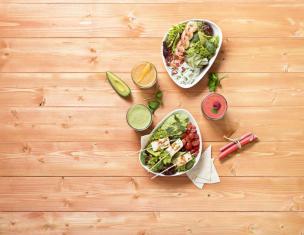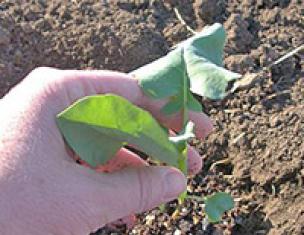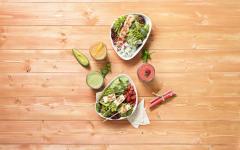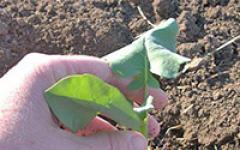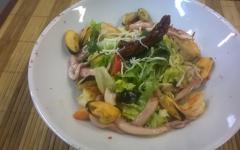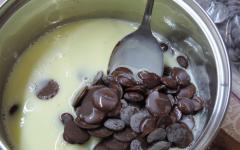Watermelons are loved by both children and adults for their refreshing and sweet taste. However, many spit out while eating the bones, considering them harmful. And it’s completely in vain, because the bones are just as good as the flesh, besides, they have healing properties.
Why people are afraid to eat watermelon seeds
Many believe that watermelon seeds can cause inflammation of the appendix. This belief has long been refuted by doctors, however, it continues to exist. Children from infancy inspire fear of the bones of watermelon, therefore, as adults, people still try to spit out every last seed, despite the fact that it is very uncomfortable.
What is useful bones
Watermelon seeds contain fatty acids: linoleic, palmitic, oleic, linolenic. Unsaturated fatty acids prevent the deposition of cholesterol, dissolve atherosclerotic plaques.
Watermelon seeds are useful not only for fatty acids. They have a diuretic, anti-inflammatory, choleretic and laxative effect. Traditional medicine successfully uses the seeds of watermelon for the expulsion of worms, treatment of urinary tract, prostatitis. If you constantly eat them, then stones and sand in the kidneys and bladder will never be.
And the pulp of watermelon, and its seeds, expel excess water from the body, remove salts, reduce the temperature.
Watermelon seeds can even be dried, and then ground into flour and added to all dishes. This will allow you to benefit from watermelon even when the season of these striped fruits is over.
Watermelon bones are rich in vitamins E, C, B1, A, B2. Of the trace elements they contain potassium, iron, sodium and calcium.
Watermelon pits are composed of hemicellulose. These plant polysaccharides accelerate lipid metabolism, adsorb various toxic substances, relieve the body of bad cholesterol.
Cellulose contained in watermelon, removes toxins, prevents the accumulation of toxins. Watermelon seeds can be crushed and added to food in case of viral and catarrhal diseases.
Watermelon is useful for people with diseases of the heart and blood vessels, it makes blood vessels elastic, removes excess fluid, strengthens the heart muscle.
Both the watermelon and its bones are very useful for people suffering from liver diseases.
Contraindications
Watermelon and bones can not be eaten with phosphaturia. Phosphaturia - urolithiasis resulting from alkaline urine. Sunflower seeds are contraindicated in colitis, enterocolitis, gastric ulcer. The flesh of watermelon can not be eaten with impaired outflow of urine, as well as with large stones in the kidneys.
We all love the flesh of sweet striped fruits, but the seeds of the seasonal berries are less fortunate, we always throw them away, and for good reason. Watermelon seeds, the benefits and harms of which are not known to many, can cure various ailments, bones have been used in medicine since ancient times, and there is a logical explanation for this. They treat many diseases, from colds to serious uterine bleeding, this is the healing power of a natural product.
What are useful watermelon bones: chemical composition
Watermelon seeds are a source of many nutrients that are important to human health. Black bones contain considerable amounts of fats, proteins, carbohydrates.
In addition to food components, seeds also include:
- vitamins of different groups;
- pectin;
- beta carotene;
- minerals;
- hemicellulose (semi-cellulose).
In more detail with the chemical component of watermelon seed can be found using the finished table. The number of useful elements is given in it per 100 g of product. Thanks to these data, it is possible to calculate the caloric content, which is quite high in watermelon seeds.
![]()
|
Useful material |
The number of items per 100g of product |
| Trace elements | |
| Copper | 690 mcg |
| Iron | 7.3 mg. |
| Zinc | 7.3 mg. |
| Manganese | 1.62 mg. |
| Macronutrients | |
| Magnesium | 514 mg. |
| Calcium | 55 mg. |
| Sodium | not more than 100 mg. |
| Phosphorus | 750 mg. |
| Potassium | 650 mg. |
| Vitamins | |
| Vitamin B1 | 0.2 mg. |
| Vitamin B2 | 0.15 mg. |
| Vitamin b3 | 0.35 mg. |
| Vitamin B6 | 0.09 mg. |
| Vitamin B9 | 58 mcg |
| Vitamin PP | 3.5 mg. |
| Calorie content | 560-600 kcal. |
Because of the high number of calories, watermelon seeds cannot be used as a dietary product, but it is very possible to use them for treating diseases of various systems and organs. The benefits of such treatment will be very tangible.
Watermelon seeds: the benefits and harm
Useful properties of watermelon bones are quite diverse. Seeds have a number of functions that best influence the vital activity of our body.
The important natural functions of seeds include:
- antiseptic;
- cleansing;
- antifungal;
- anthelmintic;
- wound healing, etc.
All the above-mentioned abilities of pits in total add up to a single system of useful properties.
Impact on the body is as follows:
- cleansing from toxins, toxins, heavy metals and other harmful substances that poison our bodies;
- getting rid of helminthic invasions;
- an increase in the alkalinity of urine, which ultimately leads to the dissolution of saline toxins in the kidneys and to the removal of harmful substances from the urine;
- tissue and wound healing;
- improvement of visual acuity, as well as the prevention of the appearance of various eye diseases;
- calming the nervous system;
- fighting insomnia;
- lowering cholesterol;
- improvement of metabolism;
- treatment of urinary tract infections.

Black seeds are especially beneficial to men's health. They have a positive effect on the prostate gland, spermatogenesis and sexual function. The use of a natural product helps a strong sex to avoid the development of adenoma and prostatitis. In general, watermelon bones contribute to maintaining normal male health.
We already found out whether the seeds of ripe watermelons are useful. But whether they can cause harm to health - to be determined.
Those who do not get rid of the bones, but use them for food in any form (dried, fried, etc.) should know that watermelon seeds are absolutely not dangerous for the body. Harmful bones only if the person has contraindications.
There are few contraindications, but, nevertheless, they exist. These include:
- urinary tract diseases;
- citrullinemia;
- gestation period.

In the presence of such conditions from the use of seeds must be abandoned. In other cases, the watermelon bones are not dangerous and even very useful for the human body. This is confirmed by a considerable number of medical prescriptions, with the help of which traditional healers heal people from many painful conditions and pathologies.
Watermelon bones in traditional medicine: recipes tinctures
Diseases that traditional medicine cannot cure are easily amenable to simple folk tinctures that everyone can prepare at home with their own hands. Minimum cooking time and some ingredients - and the healing drink is ready.
With the help of watermelon tinctures, many diseases can be treated, but some of them are particularly amenable to the healing properties of the bones. We offer you homemade watermelon drink recipes that you can always make at home and use when needed.

For the preparation of the drink will need 100 g of watermelon seeds and 1 liter of water.
- Bones pushes a heavy object. We achieve not a powdery state, but simply finely press them.
- Then we mix the crushed mass with water and put it on a slow fire for 45 minutes.
- After boiling, we filter the drink and take it three times a day at 200-250 ml.
Recipe number 2: a means to normalize blood pressure
Not many know that beneficial features bones melon culture beneficial effect on blood pressure. Due to the correctly prepared tincture, high blood pressure can be normalized.
- For this dried watermelon peels and grind the seeds into powder and take it 2 times a day.
- We use for ½ tsp. month.
Through this time, it is possible to stabilize the pressure without the help of medication.

Recipe number 3: watermelon bones for uterine bleeding
To stop dangerous uterine bleeding, it is enough to prepare a healing milky infusion with stones.
- Skip the dry seeds through a meat grinder.
- Then mix the resulting mass with boiled milk in a ratio of 1:10.
- Drink this drink must be twice a day: 1 glass between main meals.
Recipe number 4: watermelon "milk" with fever and elevated temperature
Prepare a healthy drink as follows.
- Pound seeds in cold water (respecting the proportions 1:10).
Subscribe
The fact is that the seeds of the fruit were not originally intended to bring at least some benefit to the body. They are covered with a hard shell, have a streamlined shape and are simply designed in a natural way to pass through the entire gastrointestinal tract of a human or animal with minimal damage, keeping intact the most important thing - the germ of a plant. Also, special inhibitors of enzymes in the shell additionally protect the seeds from digestion.
However, this does not mean that eating seeds and seeds is something unhealthy and unnatural. So, according to research results, some of them are really useful for our body, just substances hidden in seeds will be harder to extract. To do this, you need to crush or crush the bones, and the easiest way to do this is with a high power blender. We have compiled a list of the 7 best fruits that should be eaten with bones, and also listed berries and fruits, the bones of which are preferably not to be used at all.
Bones that are safe and beneficial to our health
Watermelon bones
Watermelon bones have never been honored, but in vain. Watermelon seeds are a storehouse of iron and zinc in a bioavailable form with a degree of absorption of more than 85-90%, and also useful for the digestion of fiber and protein - 1 gram per 24 seeds. It has also been proven that watermelon bones can help regulate blood sugar levels, as well as improve skin condition. Of course, this is not about greenhouse fruit.
Melon Seeds
If there are melon seeds in their original form, without chewing, they are rather quickly eliminated from the body in a natural way, benefiting only as a natural laxative. However, we recommend the next time to thoroughly gnaw melon seeds to get valuable digestive enzymes that can help with indigestion. In addition to these enzymes, melon seeds contain protein, phosphorus, potassium and vitamin A.
Grape seeds
Surely many of us are familiar with the fact that red wine and grapes are the richest sources of resveratrol, a phytonutrient that helps us in the fight against cancer. More resveratrol attributed to the property to strengthen the health of the heart and blood vessels, reduce the risk of developing Alzheimer's disease. This potent substance can also be found in sufficient quantities in the grape seed, along with vitamin E and linoleic acid.
Kiwi seeds
Watermelon seeds are usually sent with crusts in the trash. But it turns out that we are throwing away a very valuable product that could do a good service to the body. What exactly is the benefit and can there be harm from watermelon seeds?
The bones of the watermelon are what are usually ruthlessly thrown away during the process of eating a fruit. At least, they try not to bite. Often the question is whether it is not dangerous to swallow watermelon seeds, because this, despite the "vigilance", does happen. And for children, many adults even say that they cannot be swallowed, because “a watermelon will grow in the tummy”. Meanwhile, it turns out that watermelon seeds can be eaten, and moreover - they can be very beneficial to health!
What are the taste of watermelon bones? Is it not necessary for the sake of good to make great sacrifices? Not at all. They resemble sunflower, but still a little closer to the peanuts.
Bones are traditionally used in the cuisines of the Middle East and Asia, as well as in Sudan, Egypt and Nigeria. They can make flour and get butter. But most often watermelon seeds are eaten without a shell as a snack. In dried and fried form, they are delicious, full nutrients a product that successfully replaces harmful chips and salty sticks.
Composition, nutritional value
The bones of this giant berry are characterized nutritional valueclose to that of other seeds and seeds (and, which is remarkable, from this point of view, they far exceed the flesh of the fruit). Watermelon seeds have a fairly high caloric content: 100 g (dried) is 557 kilocalories.
- They have a lot of protein - they contain it almost twice as much as sunflower seeds and almonds. 108 g of dry seeds is about 30.6 g. For comparison: the same portion of chicken meat contains only 23 grams of protein.
- Watermelon bones supply the body with a lot of arginine, an amino acid that helps regulate blood pressure and reduces the risk of developing coronary heart disease. It is also important for people who are actively involved in sports, as it accelerates the regeneration of muscle cells due to their better supply of oxygen.
Men on the note. Arginine in watermelon seeds promotes the production of nitric oxide in the body and helps in the treatment of acute erectile dysfunction. Consuming them and the pulp itself helps to maintain an erection and increases sperm production.
- Other amino acids that make up the seeds of watermelon are tryptophan, glutamic acid and lysine. The latter have a positive effect on mental abilities, improve concentration and reduce fatigue as a result of intense intellectual work.
- The fats contained in watermelon seeds are saturated mono- and polyunsaturated fatty acids and omega-6. * Watermelon seeds provide a significant amount of magnesium: 30 g (added, for example, to oatmeal) satisfy 38% of the daily demand for this substance.
- Bones are also an important source of iron, zinc, copper and manganese, B vitamins, which control energy changes in the body and affect the functioning of the nervous system.
- In the watermelon seeds found very a large number of chemical compounds with antioxidant properties that protect cells, proteins, and DNA from free radical attacks. Because of this, they reduce the risk of cancer, type 2 diabetes, cardiovascular diseases, neurodegenerative diseases and inhibit premature aging. Antioxidants present in watermelon seeds are saponins, alkaloids, tannins, flavonoids, and phenolic compounds.
Watermelon seeds: the benefits and harm
What are the benefits of watermelon seeds from the point of view of alternative medicine?
From watermelon seeds you can make healing tea. 20-30 seeds need to be dried, chopped and boiled for 15 minutes in 2 liters of water. The drink must be drunk for 2 days, then take a day off. The use of such tea for several weeks is designed to support the work of the kidneys.
According to Ayurvedic medicine, if every day for 3-4 weeks in the morning and in the evening to eat 1 teaspoon of watermelon seeds, it reduces blood pressure.
In folk medicine, watermelon bones are used as an emollient and tonic.
Useful properties of watermelon seeds, revealed by science
A very wide range of the effectiveness of these seeds is increasingly confirmed in scientific studies. What is the use of watermelon seeds from the point of view of scientists?
Antimicrobial and antifungal effects
Watermelon seed extract is effective against bacteria and fungi, in particular, Escherichia coli and Candida albican. Its action is comparable to the action of pharmacological drugs, for example, clotrimazole and gentamicin.
Antioxidant action
The powerful antioxidant potential of the extract from watermelon seeds was identified during studies using free radicals - DPPH and hydrogen peroxide.
The effect against diabetes
Watermelon seeds affect the cells of the pancreas and prevent their death. Because of this, it may be essential in the treatment of type 1 diabetes. They affect the decrease in blood glucose and increase insulin levels. For this action, probably responsible tannins, saponins and flavonoids, as well as soluble fibers.
Effect of watermelon seeds on the treatment of gastrointestinal ulcers
Studies in rats have shown that the extract from such seeds is effective in the treatment of gastric ulcers when compared with standard preparations. A positive effect can be caused by inhibition of secretion of juices and digestive enzymes, as well as a protective effect on cells.
Inhibition of prostatic hypertrophy
The effect of reducing the size of the prostate gland of watermelon seed extract has been demonstrated in rat studies. Histological examination has clearly shown that methanol seed extract is a potential healing agent for the treatment of disorders caused by male sex hormones, in particular, prostate hypertrophy.
Other properties of watermelon seeds, ensuring the benefit of their use
In addition to health-improving properties, confirmed by scientific research, watermelon seeds may also have another effect, resulting from the presence of vitamins, minerals and antioxidants. This is what potentially watermelon seeds can be for the human body.
- Strengthening hair - iron present in the bones promotes rapid growth of hair, and magnesium and copper are responsible for its healthy appearance and rich color. Fatty acids moisturize the hair, prevent overdrying, brittleness and the appearance of split ends.
- Shiny skin - unsaturated fatty acids prevent skin dehydration and rashes, make the face cease to be gray and looks healthy.
- Antioxidants protect against wrinkles, age spots and premature aging.
- A positive effect on the cardiovascular system - magnesium, potassium and iron are necessary for the proper functioning of the heart and cardiovascular system, and arginine helps to lower blood pressure levels.
- Positive effect on the nervous system - due to the content of magnesium and vitamins of group B.
- Filling up the protein shortage in a vegetarian diet - watermelon seeds are an excellent source of protein and can be a valuable element of a vegetarian diet.
Watermelon seed oil is good too!
Watermelon seed oil has anti-inflammatory and analgesic effect, which was confirmed by studies in rats. The extract for a maximum of 3 hours caused a significant decrease in paw edema in animals. Its effectiveness is comparable to the effect obtained when using diclofenac - a known anti-inflammatory agent. Watermelon seeds inhibit the synthesis of serotonin, histamine and prostaglandins - the main mediators of inflammation.
In addition, the oil from the seeds of watermelon is useful in that it has a protective effect on the liver cells. After the administration of carbon tetrachloride toxic to the liver to rats, and then a portion of the oil for 10 days, there was a marked decrease in the level of liver enzymes in the blood, which are an indicator of organ failure. The activity of watermelon seed oil is comparable to that of silymarin, a compound known for its protective action against the liver.
Watermelon seeds: when will they be harmful?
- Acids of the omega-6 family are essential for the proper functioning of the body, and have a positive effect on the cardiovascular system. However, it is very important to remember to maintain the correct proportion of them with omega-3 fatty acids. Excess omega-6 can affect health negatively - remember this and keep a sense of proportion.
- The presence of a small amount of oxalate and phytin, which impede the absorption of mineral substances, is found in the seeds of watermelon.
- The high calorie content of the watermelon seeds makes them a dubious treat for obese and overweight people who have a sedentary lifestyle.
- The presence of the amino acid citrulline, synthesized by the human body, can create problems for people with citrullinemia. The same substance in a number of sources is called the reason for refusing to use the useful watermelon seeds for pregnant, lactating and children up to 3 years.
Watermelon bones: use in cooking
![]() The use of not only the pulp, but also the bones and crusts is a long-standing tradition in the countries of Asia and Africa. Thus, in West Africa, the use of watermelon seed flour is popular, which serves to thicken soups. The seeds are also fermented and receive a sweet delicacy called ogiri. Another African delicacy - igbalo - is obtained from roasted grains, wrapped in leaves and cooked. However, other people's culinary traditions are, of course, a curious experience, but not always acceptable. How can we use watermelon seeds to us, so that we can receive benefits and not create unnecessary difficulties?
The use of not only the pulp, but also the bones and crusts is a long-standing tradition in the countries of Asia and Africa. Thus, in West Africa, the use of watermelon seed flour is popular, which serves to thicken soups. The seeds are also fermented and receive a sweet delicacy called ogiri. Another African delicacy - igbalo - is obtained from roasted grains, wrapped in leaves and cooked. However, other people's culinary traditions are, of course, a curious experience, but not always acceptable. How can we use watermelon seeds to us, so that we can receive benefits and not create unnecessary difficulties?
Raw seeds are best to clear the shell. In principle, they can be eaten with it, but in this case it will be necessary to chew them for a long time and carefully to make it possible to use valuable nutrients for the benefit of your body. If, however, do not bother chewing, and swallow with the pulp, then the bones will pass entirely through the gastrointestinal tract and can benefit only in the form of a relieved chair.
The most common culinary use of seeds is to use them in the form of fried and seasoned with spices. They can be eaten as a separate dish, or they can be added to a mixture of nuts and dried fruits and put, for example, in oatmeal or sprinkled with soups or salads.
How to fry watermelon seeds?
Roasting watermelon seeds at home is quite simple. It is necessary to lay out the washed and dried seeds on a baking sheet covered with baking paper and put them in an oven heated to 160 degrees Celsius for 15 minutes.
Seeds can be fried and a little longer - to be more crispy.
Then you should spice them up to your taste, for example, olive oil and a pinch of salt, lime juice and hot pepper or - for the sweet version - cinnamon and a pinch of sugar.
Fried watermelon seeds are an ideal snack instead of chips or crackers. True, they supply a similar amount of calories, but the nutritional value of seeds is incomparably higher than that of salty snacks. In addition, 30 g of chips, which supply about 160 kcal, is only 15 pieces, and 30 g of watermelon seeds with the same calorie content - about 400, which means that the bones will have to be consumed much longer, resulting in a chance to eat less quantity.
Watermelon bones are superfoods. They have a high nutritional value and have a beneficial effect on health, supplying our body with a lot of protein and healthy fat, as well as magnesium, iron, B vitamins and antioxidants. They have a wide, versatile effect on health: they reduce blood sugar levels, provide anti-inflammatory and analgesic effects, treat stomach ulcers, protect the liver from toxins, etc. The bones of the watermelon are easy to prepare and are eaten as an interesting snack when fried. Thus, watermelon seeds are a science-proven benefit and only minor harm, and only under certain conditions. This is definitely worth remembering on the eve of the season adored by many berries and dry for the whole year.
Useful properties of watermelon seeds for the body: is there a contraindication, chemical compositionwhat and how they can be cured, how tasty they can be cooked.
Do not rush to throw away the watermelon seeds, you can cook them very tasty and also use them for other purposes. Watermelon seeds, properly cooked, will be a full-fledged substitute for sunflower seeds or peanuts. In addition, this dessert is absolutely free. You can have a good time in front of the TV or with a jar of beer with roasted trumpet seeds.
Someone loves watermelon, some do not, but they eat it a lot (especially in summer and autumn) and it is not an exotic fruit.
In its red juicy sugar flesh there are always many dark brown hard large seeds. Just chewing them with the pulp of watermelon is unpleasant and not tasty. Should I throw them away? Can I eat them? Do they have healing properties? Let's figure it out.
Properties of watermelon seeds
All substances that make watermelon useful are present both in the pulp and in the seeds, and even in the watermelon rind.
For example, biological substances that increase the alkalinity of urine and affect the cleansing of the urogenital sphere: saline toxins dissolve in the kidneys and are excreted in the urine. Also, besides the diuretic effect, watermelon seeds have an antiseptic anti-inflammatory effect. They taste no worse than sunflower seeds, they can also be fried, dried and salted. So, we can safely talk about both medicinal and culinary properties of watermelon seeds.
By the way, for the first time I ate dried watermelon seeds in Thailand, they are sold there like pumpkin seeds in any stores! But here in Russia they are somehow thrown away.
The composition and caloric content of watermelon seeds
25 g - 150 kcal, but at 100 g it turns out - all 600 kcal
It is more pleasant to eat dried watermelon seeds. At the same time, they do not lose their properties: vitamins and trace elements are preserved. They even contain healthy fats - polyunsaturated (including omega-6), monounsaturated, and saturated.
The calorie content of watermelon seeds per 100 g - 560─600 kcal, so there:
Protein - 28.3 g
Fat - 47.4 g
Carbohydrates - 15.29 g
Saturated fatty acids - 9.78 g
Water - up to 5 g
Ash - up to 4 g
Fiber is not contained at all, but a lot of vitamins and beneficial micro and macro elements.
Vitamins:
Vitamin B1 Thiamine - 0.2 mg
B2 riboflavin - 0.15 mg
B3 nicotinic acid - 0.35 mg
B6 pyridoxine - 0.09 mg
B9 folic - 58 mcg
PP - 3.5 mg
Macro elements:
Phosphorus - 750 mg
Calcium - 55 mg
Potassium - 650 mg
Magnesium - 514 mg
Sodium - up to 100 mg
Trace elements:
Iron - 7.3 mg
Manganese - 1.62 mg
Copper - 690 mcg
Zinc - 7.3 mg
In the raw watermelon seeds there is hemicellulose, the more common name is semi-cellulose, and so it contains polysaccharides that do not dissolve in water and enhance the cleaning properties of the seeds. Although we know that watermelon is not a Pancake week culture, its oil seeds still contain 20–40 percent. The properties resemble almond.
The benefits and harm of watermelon seeds
Traditional medicine appreciates this watermelon product because it perfectly removes uric acid from the body. This therapeutic property prevents the occurrence of urolithiasis. Seeds are especially useful for men, because they support the function of the prostate gland, and due to the content of selenium and zinc they prevent the development of adenoma, normalize sexual function.
The protein content (about 35%) indicates a sufficient content of amino acids to maintain muscle mass and replenish the energy expended by the body. There are four useful amino acids in the seeds of watermelon: tryptophan, glutamic acid, lysine and arginine. The latter supports the heart muscle and normalizes blood pressure, reduces the risk of heart attack.
Less effective, but still help useful material Watermelon seeds improve eyesight, support the health of eyes, nails, skin, hair. They improve the metabolism, the nervous system and are very well known as an anthelmintic agent.
Watermelon, including all its constituents (pulp, seeds, peel) contains the amino acid citrulline, which is controversial in terms of its usefulness. The fact is that when released into the alimentary canal, it is converted into L-arginine, which our body is able to synthesize on its own. The benefits of citrulline include the ability to lower blood pressure, dilate blood vessels, they are treated with impotence, it affects the level of glucose in the blood. But there is a controversial side - harm to people with impaired synthesis of citrulline.
Studies have shown that citrulline in the body is broken down with the release of a “bad” product - ammonia. It is excreted in the urine, but it is this fact that proves the harmfulness of the pulp and seeds of watermelon for patients with citrullinemia, which is associated with the urea cycle.
How to cook watermelon seeds
The most popular recipe is to fry them. Before cooking, the seeds are washed and dried on a towel, for example. Then, pour them on a heated dry pan and fry them for about 6 minutes until it gets dark. Dissolve a teaspoon of salt in a glass of water and pour this mixture into the pan. Continue to fry until liquid is gone. Turn off the heat, cool the watermelon seeds and serve.
Anthelmintic recipe: Before cooking, the seeds of the watermelon are dried in the oven, then crushed and mixed in a ratio of 1:10 with non-fat milk. The resulting "cocktail" is drunk during the day with at least 2 glasses. Drink on an empty stomach.
Popular recipe for hypertension: dried seeds and watermelon rind, then crushed them into powder. Take it on a half teaspoon 2 p. in a day. If you take the powder continuously for one month, then the pressure is normalized. Also, the recipe acts as a choleretic agent, but it is necessary to use powder 2 or 3 teaspoons in the morning and before bedtime.
In general, in cooking in other countries, watermelon seeds are used more actively. The Chinese, for example, fry them with different seasonings, crush them in Africa and add them to soups and sauces.
Cooking watermelon seeds at home is very simple.
To do this, you need ingredients:
watermelon seeds - 1 cup
salt - 1 tsp
0.5 glass of water
How to cook delicious salted watermelon seeds
Watermelon sunflower seeds rinse well, so that the flesh of watermelon does not remain on them. Use only ripe black seeds, white for food is not suitable, they will burn during roasting. It is also desirable to take large watermelon seeds.
Spread out the washed watermelon seeds on a dry towel (you can take a paper towel) and dry well, preferably in the sun.
Then the seeds must be fried.
How to fry watermelon seeds
Heat the dry, oil-free, frying pan over medium heat and fry the seeds, stirring with a spatula, until they crack and open easily.
Add water and salt, mix well again and stir-fry until the water boils to make the seeds dry again.
Watermelon seeds are ready for eating. They are well suited to beer and just as a substitute for sunflower seeds.
Raw watermelon seeds, application
And raw watermelon seeds can be used as food for parrots and other tropical birds, they can also be given to rodents to diversify the menu of animals.
To prepare the seeds for birds and animals, they do not need to be roasted, it is enough to wash and dry them as described above. Dry seeds can be stored for a year in a dry place and delight your pets.
You can also make beautiful crafts from watermelon seeds.
Tags:


